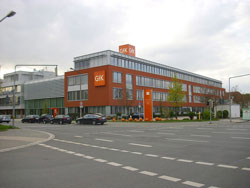
Most companies know that satisfaction does not necessarily imply loyalty, which GfK has re-confirmed via a recent global R&D study that showed that the correlation between a company's level of customer satisfaction and loyalty was only around 40 percent.
GfK has identified a new customer experience indicator that bridges this gap, which they have termed "emotional imprint". GfK's new model proves that strong emotional imprints lead to significantly lower rates of customer churn and more positive word-of-mouth.
By integrating the "emotional imprint" of the customer experience with customer advocacy, and other critical KPIs, such as Relationship Durability and Switching, GfK is accurately predicting company-level loyalty scores at a rate of 80 percent - double the rate of using customer satisfaction alone.
David Robbins, global lead for GfK Customer Harmonics, explains, "Our new model shows that the more memorable and vivid an experience, the stronger the emotional imprint it creates - and the higher that person's advocacy and resistance to switching to competitors. By identifying those aspects of the experience that leave an emotional imprint, we can provide sharper, customer-centric insights on which attributes to promote, to drive loyalty and enhance customer life time value."
Helen Zeitoun, Global Head of Brand and Customer Experience at GfK, added, "Through the integration of GfK Customer Harmonics with our customer experience management technology, GfK Echo, we can better enable our clients to increase their operational and tactical success in managing the customer experience at the point of service in real-time."

The GfK Association was established in 1934 as a non-profit organization for the promotion of market research. Its membership consists of approximately 600 companies and individuals. The purpose of the Association is to develop innovative research methods in close cooperation with academic institutions, to promote the training and further education of market researchers, to observe the structures and developments in society, the economy and politics that play a key role in private consumption, and to research their effects on consumers. Survey results are made available to the membership. The GfK Association is a shareholder in GfK SE.
Go to: http://www.gfk.com